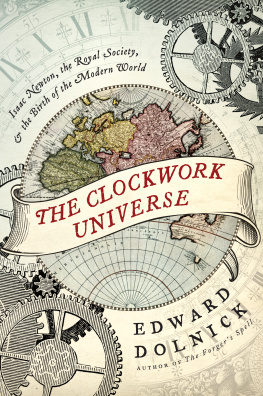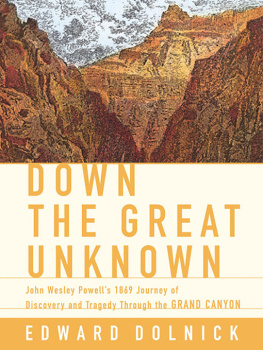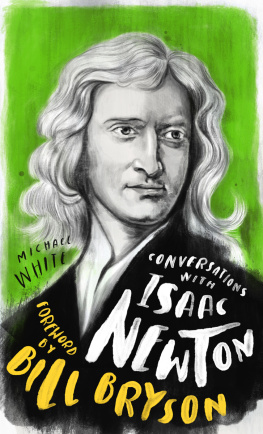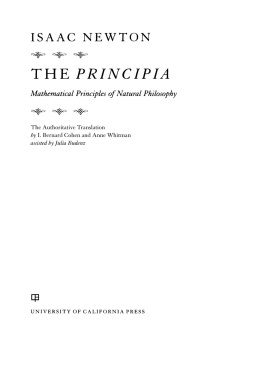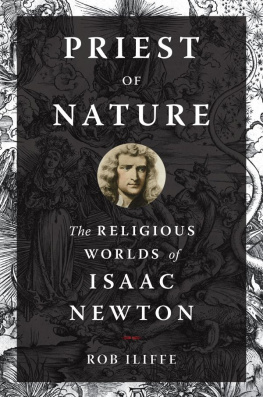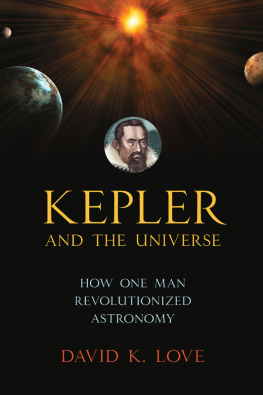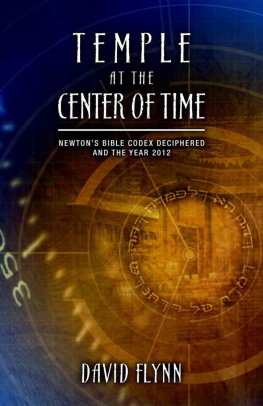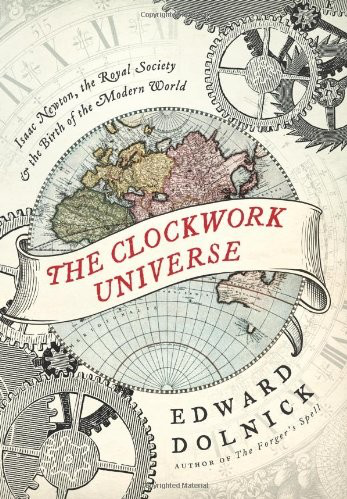
The Clockwork Universe
Isaac Newton, the Royal Society, and the Birth of the Modern World
EDWARD DOLNICK

For Lynn
The universe is but a watch on a larger scale.
B ERNARD DE F ONTENELLE, 1686
Contents
1543 Copernicus publishes On the Revolutions of the Celestial Spheres , which says that the planets circle the sun rather than the Earth
1564 Shakespeare born
1564 Galileo born
1571 Kepler born
1600 Shakespeare writes Hamlet
1609 Kepler publishes his first two laws, about the paths of planets as they orbit the sun
1610 Galileo turns a telescope to the heavens
1616 Shakespeare dies
16181648 Thirty Years War
1619 Kepler publishes his third law, which tells how the planets orbits relate to one another
1630 Kepler dies
1633 Inquisition puts Galileo on trial
1637 Descartes declares I think, therefore I am, and, in the same book, unveils coordinate geometry
16421651 English Civil War
1642 Galileo dies
1642 Newton born
1646 Leibniz born
1649 King Charles I beheaded
1660 Official founding of the Royal Society
166466 Newtons miracle years. He invents calculus and calculates gravitys pull on the moon.
1665 Plague strikes London
1666 Great Fire of London
1674 Leeuwenhoek looks through his microscope and discovers a hidden world of little animals
1675 Newton becomes a member of the Royal Society
167576 Leibnizs miracle year. He invents calculus, independently of Newton.
1684 Leibniz publishes an account of calculus
1684 Halley visits Newton at Cambridge
1687 Newton publishes the Principia , which describes The System of the World
1696 Newton leaves Cambridge and moves to London
16991722 Newton and Leibniz, and supporters of both men, battle over calculus. Each genius claims the other stole his idea.
1704 Newton publishes an account of calculus, after thirty years of near silence
1705 Newton knighted
1716 Leibniz dies (Newton continues fighting to claim calculus)
1727 Newton dies
Few ages could have seemed less likely than the late 1600s to start men dreaming of a world of perfect order. Historians would later talk of the Age of Genius, but the Age of Tumult would have been just as fitting. In the tail end of Shakespeares century, the natural and the supernatural still twined around one another. Disease was a punishment ordained by God. As tronomy had not yet broken free from astrology, and the sky was filled with omens.
The only man-made light came from flickering flames and sputtering lanterns. Unless the moon was out, nights were dark and dangerous. Thieves and muggers prowled the streets the first police forces lay far in the futureand brave souls who ventured outdoors carried their own lanterns or hired a linkboy to light the way with a torch made from a hunk of fat-soaked rope. The murder rate was five times as high as it is today.
Even in midday, cities were murky and grimy. Coal smoke left a sooty Crust or Furr on all it touched. London was one of the worlds great cities and a center of the new learning, but it was, in one historians words, a stinking, muddy, filth-bespattered metropolis. Huge piles of human waste blocked city streets, and butchers added heaps of the soyle and filth of their Slaughter houses to the towering mounds.
Ignorance made matters worse. The same barges that brought vegetables to the city from farms in the countryside returned laden with human sewage, to fertilize the fields. When Shakespeare and his fellow investors built the Globe Theatre in 1599, the splendid new building held at least two thousand people but was constructed without a single toilet. Well over a century later, hygiene had scarcely improved. At about the time of Louis XIVs death in 1715, a new rule was put in place requiring that the corridors in the palace at Versailles be cleaned of feces once a week.
No one bathed, from kings to peasants. The poor had no choice, and the wealthy had no desire. (Doctors explained that water opened the pores to infection and plague. A coat of grease and grime sealed disease away.) Worms, fleas, lice, and bedbugs were near-universal afflictions. Science would soon revolution ize the world, but the minds that made the modern world were yoked to itchy, smelly, dirty bodies.
On the public stage, all was crisis and calamity. Through the early part of the century, Germany had suffered through what would later be called the Thirty Years War. The blandness of the name obscures the horror of a religious war where one raping, looting, marauding army gave way to another, endlessly, and where famine and disease followed close on the armies heels. England had been convulsed by a civil war. In London in 1649, a shocked crowd looked on as the royal executioner lifted his axe high and chopped off the kings head. In the 1650s plague swept across Europe. In 1665 it jumped the Channel to England.
In the wings, the events that would reshape the world went on unnoticed. Few knew, and fewer cared, about a handful of curious men studying the heavens and scribbling equations in their notebooks.
Humans had recognized natures broad patterns from the beginningnight follows day, the moon waxes and wanes, the stars form their familiar constellations, the seasons recur. But they had noticed, too, that no two days were identical. Men expected the sun to rise, wrote Alfred North Whitehead, but the wind bloweth where it listeth. If people referred to laws of nature, they had in mind not true laws but something akin to rules of thumb, guidelines subject to exceptions and interpretation.
Then, at some point in the 1600s, a new idea came into the world. The notion was that the natural world not only follows rough-and-ready patterns but also exact, formal, mathematical laws. Though it looked haphazard and sometimes chaotic, the universe was in fact an intricate and perfectly regulated clockwork.
From the cosmically vast to the infinitesimally small, every aspect of the universe had been meticulously arranged. God had created the world and designed its every feature, and He continued to supervise it with minute care. He had set the planets in orbit and lavished care on every one of a houseflys thousand eyes. He had chosen the perfect rate for the Earths spin and the ideal thickness for a walnuts shell.
Natures laws were vast in range but few in number; Gods operating manual filled only a line or two. When Isaac Newton learned how gravity works, for instance, he announced not merely a discovery but a universal law that embraced every object in creation. The same law regulated the moon in its orbit round the Earth, an arrow arcing against the sky, and an apple falling from a tree, and it described their motions not only in general terms but precisely and quantitatively. God was a math ematician, seventeenth-century scientists firmly believed. He had written His laws in a mathematical code. Their task was to find the key.
My focus is largely on the climax of the story, especially Newtons unveiling, in 1687, of his theory of gravitation. But Newtons astonishing achievement built on the work of such titans as Descartes, Galileo, and Kepler, who themselves had deciphered paragraphs and even whole pages of Gods cosmic code. We will examine their breakthroughs and false trails, too.
All these thinkers had two traits in common. They were geniuses, and they had utter faith that the universe had been designed on impeccable mathematical lines. What follows is the story of a group of scientists who set out to read Gods mind.
Next page
